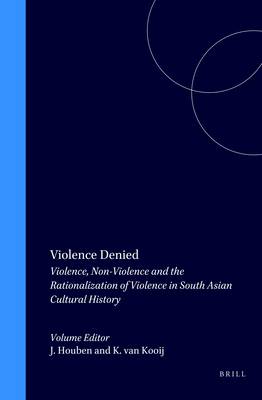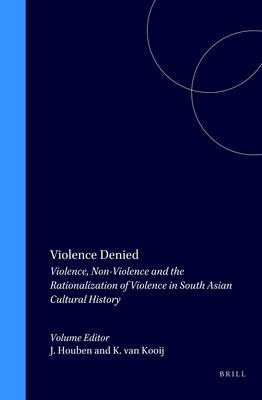
- Afhalen na 1 uur in een winkel met voorraad
- Gratis thuislevering in België vanaf € 30
- Ruim aanbod met 7 miljoen producten
- Afhalen na 1 uur in een winkel met voorraad
- Gratis thuislevering in België vanaf € 30
- Ruim aanbod met 7 miljoen producten
Zoeken
Omschrijving
In the course of millennia of dealing with problems of violence, South Asia has not only elaborated the ideal of total avoidance of violence in a unique manner, it also developed arguments justifying and rationalizing its employment under certain circumstances. Some of these arguments seemingly transform all sorts of 'violence' into 'non-violence'.
Historical and cultural aspects of the tensions between violence and its denial and rationalization in South Asia are taken up in the contributions of this volume which deal with topics ranging from the origins of the concept of ahiṃsā, to the iconography and interpretation of a self-beheading goddess, and violent heroines in Ajñeya's Hindi short stories.
Historical and cultural aspects of the tensions between violence and its denial and rationalization in South Asia are taken up in the contributions of this volume which deal with topics ranging from the origins of the concept of ahiṃsā, to the iconography and interpretation of a self-beheading goddess, and violent heroines in Ajñeya's Hindi short stories.
Specificaties
Betrokkenen
- Uitgeverij:
Inhoud
- Aantal bladzijden:
- 408
- Taal:
- Engels
- Reeks:
- Reeksnummer:
- nr. 16
Eigenschappen
- Productcode (EAN):
- 9789004113442
- Verschijningsdatum:
- 7/06/1999
- Uitvoering:
- Hardcover
- Formaat:
- Genaaid
- Afmetingen:
- 161 mm x 243 mm
- Gewicht:
- 848 g

Alleen bij Standaard Boekhandel
+ 729 punten op je klantenkaart van Standaard Boekhandel
Beoordelingen
We publiceren alleen reviews die voldoen aan de voorwaarden voor reviews. Bekijk onze voorwaarden voor reviews.







